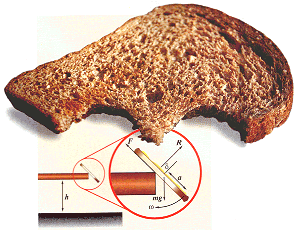Juxtaposition: “I Am So Starving”
I Am So Starving

Oh, my God, I am so starving. I swear, if I don’t get something to eat in like two minutes, I am going to die.
I cannot believe how completely famished I am. Why do we have to wait for Tyler to get home from soccer practice? I want to eat now. It’s almost 6:15.
I didn’t even get to eat lunch today. Erica and I had to sign up for kickline tryouts at noon. We got to the cafeteria way late, and we weren’t about to stand in line with the sophomores. All I had was a Twix and half a bag of Fritos. Plus, the stupid machine was out of Diet Coke.
No, I did not still have those carrot sticks left at lunch. I ate them all after second period. Duh.
Did you hear that? I can totally hear my stomach making these weird growling noises. I think I’m going to faint.
Please, please, please let me eat now so I can go up to my room–I have a ton of people to call tonight. It’s so lame how you make us all wait to eat dinner together. Erica always gets to eat by herself in the living room with the TV on.
If we’re going to wait this long for Tyler, he has to load the dishwasher. I did it last night, and it was totally nasty because you made that lasagna, and I had to scrape all the gunky cheese off the pan.
I am so totally starving. You know, it’s against the law to treat your kids like this. You could get thrown in jail by the social-services people for this kind of abuse.
Oh my God, what are you taking out of the oven? Is that, like, salisbury steak? I could seriously puke just looking at that. You actually expect me to eat that? Yeah, right. Like I’m really gonna put that in my mouth. I’ll be in my room if I get any phone calls.
Ugh. I swear, I could just die.
I Am So Starving

My God, I am starving. If I do not find something to eat soon, I will surely die.
Hunger consumes my life. My young body is hunched and weak, as if I were an old man. Some days, I pass the time by counting my bones.
I would walk 100 miles through the desert to reach a handful of millet. The sight of a sparrow carcass would make my mouth water, if only I were not too dehydrated to salivate. I have not eaten a full meal since the last rain, which caused a few precious patches of field grass to sprout. Soon, there will be none of us left.
I am so very, very hungry. I grow thinner and thinner, as my body starts to digest its very self. The last thing I ate was a small lizard. This was nine days ago. I gave half of it to my only remaining brother. I did this to return a favor: Last month, he discovered a piece of tree bark and shared his bounty with me. Unfortunately, my body was so unaccustomed to food, I was soon doubled over in pain, as a flood of liquid shot from my bowels. Ever since then, my rectum has protruded from my anus. My lower intestines have begun to push their way out, as well.
They say it is almost the new year, but I do not know if I will live to see it. My stomach is swollen as if I were pregnant. I joked with my brother about this yesterday, rubbing my bloated belly and calling it “my little one.” My brother did not laugh. He lowered his head and cried.
My legs are like sticks and my eyes nearly sightless. I am careful not to allow myself to daydream about the harvest feasts of my youth, for my weak heart might race and burst in my chest. Those who are still alive have taken to swallowing dirt and rocks in an attempt to stop the hunger pains. Oh, God, why are we made to suffer so?
My only distraction from the constant, gnawing hunger is the chill that runs through my bones. Even in the sweltering heat, I am cold. Perhaps I will soon die of pneumonia. This would finally quell the pangs of hunger. I long to live, but, even more, I long to die.
The above was originally written for the onion and can be found here
Please subscribe to the Ordinary Miracles blog by email or RSS.
Read Full Post »









